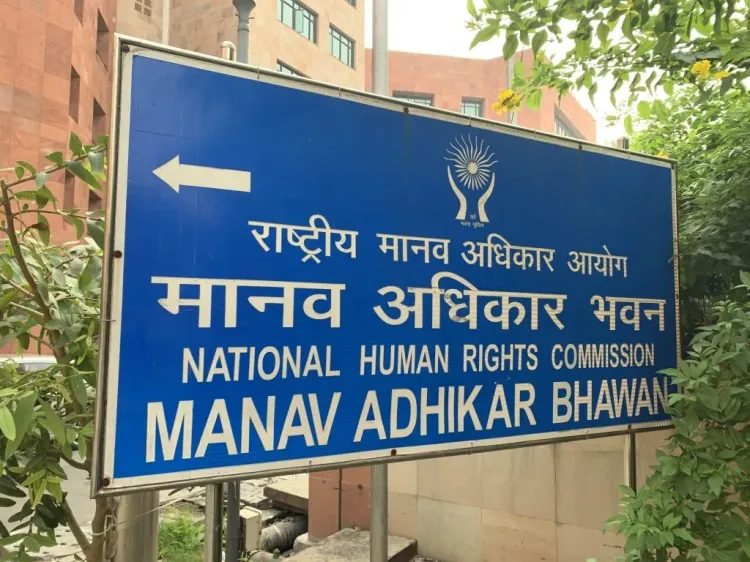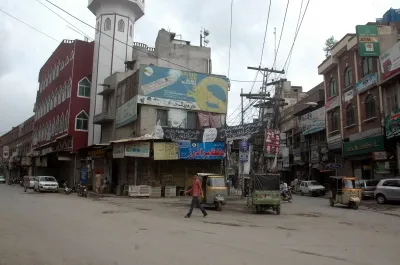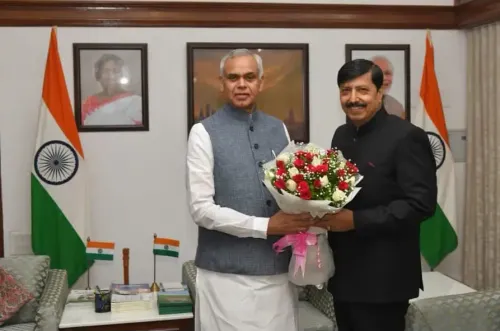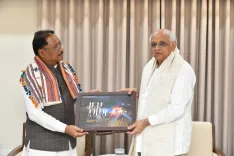Is the NHRC Holding Odisha CS Accountable for DMF Funds Misuse?

Synopsis
Key Takeaways
- NHRC's directive highlights accountability.
- Rs 18,000 crore unspent in DMF funds.
- Impact on basic services in mining areas.
- Rights activist calls for transparency and community involvement.
- Need for urgent action from state authorities.
Bhubaneswar, May 12 (NationPress) The National Human Rights Commission (NHRC) has instructed the Chief Secretary of Odisha to present an Action Taken Report (ATR) regarding claims of inadequate utilization of District Mineral Foundations (DMF) funds in various mining-impacted regions of the state.
The NHRC has mandated the Chief Secretary to provide the ATR within two weeks of receiving the order. This directive was issued while addressing a petition submitted by rights advocate Manoj Jena.
“The complainant has brought to the Commission's attention the issue of ineffective use of DMF funds in Odisha. Despite the state collecting over Rs 30,000 crore in DMF funds, nearly Rs 18,000 crore remains unutilized, leaving mining-affected areas lacking essential services such as healthcare and clean drinking water. He urges the relevant authorities to judiciously utilize the funds, engage local communities, and ensure transparency,” the order stated.
The NHRC characterized the allegations in Jena's complaint as severe violations of the human rights of individuals residing in mining-afflicted regions throughout the state.
In his complaint, the rights activist raised concerns over the evident neglect by district administrations and local MLAs and MPs in effectively utilizing the DMF funds for the socio-economic advancement of communities impacted by mining activities.
“Why is there such enormous negligence in the expenditure of development funds, despite legal provisions that designate district Collectors as chairpersons of DMF trusts, with local MPs and MLAs as members? This constitutes a serious infringement on the right to development for the people in mining areas,” Jena asserted.
He also pointed out that the mining sector contributes approximately 10 percent to the Gross State Domestic Product in Odisha. Jena claimed that despite this growth, the benefits are not adequately reaching the residents of mining areas, failing to improve their vulnerable situations.
Furthermore, he highlighted that key mining districts such as Keonjhar, Sundergarh, Jharsuguda, Jajpur, Koraput, and Angul remain underdeveloped in terms of human development, access to healthcare, sanitation, safe drinking water, basic amenities, and the well-being of women and children, as well as employment and environmental conditions.
He alleged that the fund established under the Odisha Mineral Bearing Area Development Corporation is also largely unspent. He urged the commission to recommend that the state government take appropriate action against negligent government officials for their failure to utilize DMF funds, establish a timeline for fund expenditure, and conduct a social audit of the DMF fund involving local communities and domain experts.









